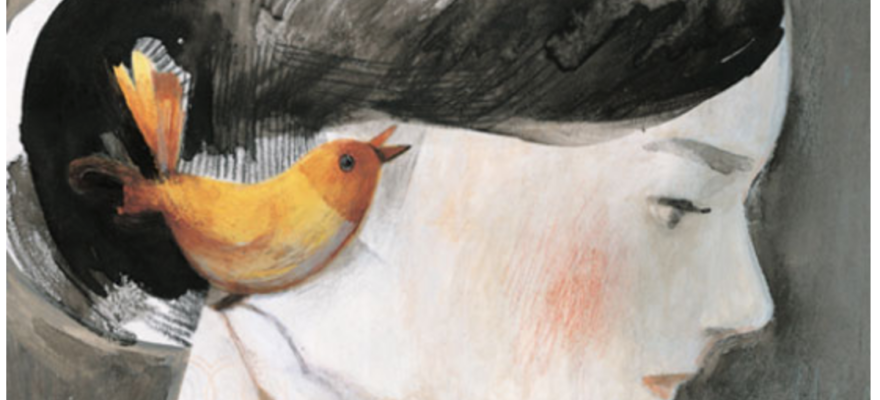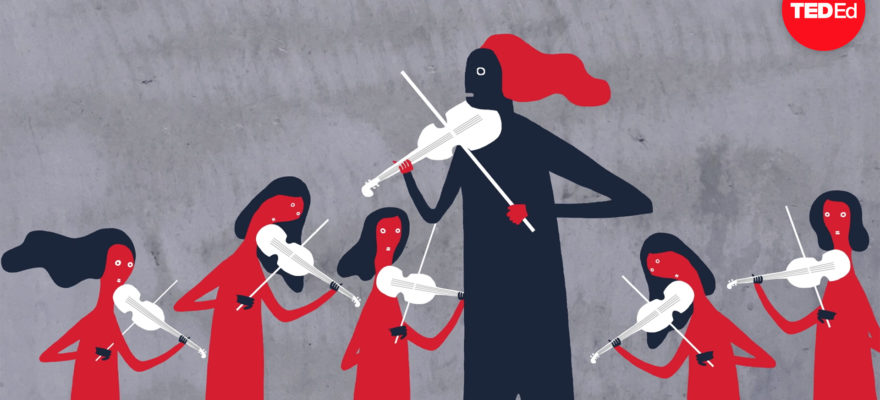One wonders only when he is alone and seeks the truth. – Einstein “Inner dialogue with oneself is an essential human condition ” states psychiatrist Carl Gustav Jung (1875-1961). Murmuring, out loud, intuitive, singing, contemplating…in whatever mode, the conversation made with oneself is the characteristic of all human beings. From an early age on, one speaks to himself without any external trigger, relentlessly accommodates and comforts himself … in the form of talking aloud either through objects or directly with oneself. It allows us to reflect, to come back to our self while distinguishing us from our environment, and …
Category: English
The most difficult thing is to know yourself. – Thales The impact of our perceptual patterns on the way we navigate the “self” has always been a cornerstone in understanding human behavior. Long before neuroscience started thought experiments on the nature of reality, William James (1842-1910), the pioneer American psychologist put forward “ our view of the world is truly shaped by what we decide to perceive ” and that, in effect, shapes the world around us. Carl G. Jung (1875-1961), founder of the analytical school firmly believed that the “ unconscious is our great guide .” He proclaimed that …
“ The world is sown with good but unless I turn my glad thoughts into practical living and till my own field, I cannot reap a kernel of the good. The desire and will to work is optimism itself. ” Helen Keller (1880– 1968), the outstanding woman who grew up without sight or hearing, in her quest for knowing she not only became learned in philosophy, history, math, science and world matters, but also became an intellectual activist, a “doer” for the good of humankind, and the society at large. She recounts the transforming experience from her inner …
Dr. Charles Limb, a surgeon, neuroscientist, hearing specialist and musician sets forth, “ music is the most complicated sound the brain can process. ” Improvisation flows in spontaneous creative modes. The musician prepares to execute unplanned ideas in a spontaneous context as if they are projected fast forward on a screen somewhere out there and the musician simultaneously processes them in a feed-forward fashion and brings them to play up on his instrument. A true miracle of inspiration !
“Resilience across writing is a good way to get out of the fog and light up your life” says Boris Cyrulnik, neuropsychiatrist and writer, having lost both his parents at the age of five, is a living model of how one develops resilience and can overcome the major dramas of life. When the word “resilience” was first used in physics it referred to a body’s ability to absorb an impact. Transformed to the human psyche, it is the capacity to transcend from traumatic experiences. Brené Brown defines resilience as a character quality “ it is how we fold our …
Plato’s ingenious parable on how we discern truth from fake, our huge distortions of perception and on the essence of true reality animated below.
A most wonderful example of cognitive dissonance theory of psychology, written in such a delightful fable by La Fontaine. Rosy and ripe, and ready to box, The grapes hang high o’er the hungry Fox He pricks up his ears, and his eye he cocks. Ripe and rosy, yet so high! He gazes at them with a greedy eye, And he knows he must eat and drink or die. When the jump proves to be beyond his power “Pooh!” says the Fox. “Let the pigs devour Fruit of that sort. Those grapes are sour!” Translated by: William Trowbridge Larned …
Happiness has been a quest for humankind evers since; from ancient greek philosophers to contemporary psychologists, from physicists to ordinary people. Definitions of happiness were constructed and reconstructed. Roadmaps were given as to where one can find it and remedies were suggested for sustaining it. For one, it is to love and be loved, for another, happiness is attainable by social acceptance, status, sucess or material wealth. Some find joy in helping others or seek it in states of gratitude. The moments or states of happiness are variant, depending on the individual characteristics and the context. But the common …
How the Medicinal Herbs Grew in the Temple of Solomon — the Farther Mosque which Solomon visited daily for devotion and to guide the devotees During his prophecy, David received a Divine order which ordained that his son, Solomon should build a temple. Set out to fulfill this order, Solomon began constructing the temple which would be renowned as the Temple of Solomon. Also later known as the Farther Mosque, it would preserve its unprecedented standing in history. Rumi recounts the blissful story of Solomon’s Temple in his Mathnawi, and says that plentiful stones needed in the construction were fetched …
But already my desire and my willWere being turned like a wheel, all at one speed,By the love which moves the sun and the other stars. Dante Alighieri[1265 Florence-1321 Ravenna] Dante started to write Divine Comedy at the age of 35 when he had to leave his hometown Florence due to a political dispute between the two prominent families. His journey in exile coincides with the narration of Divine Comedy which is considered as one of the timeless masterpieces of western literature. In his epic book, he recounts his afterlife journey to the other world where souls dwell in …

















Social Profiles